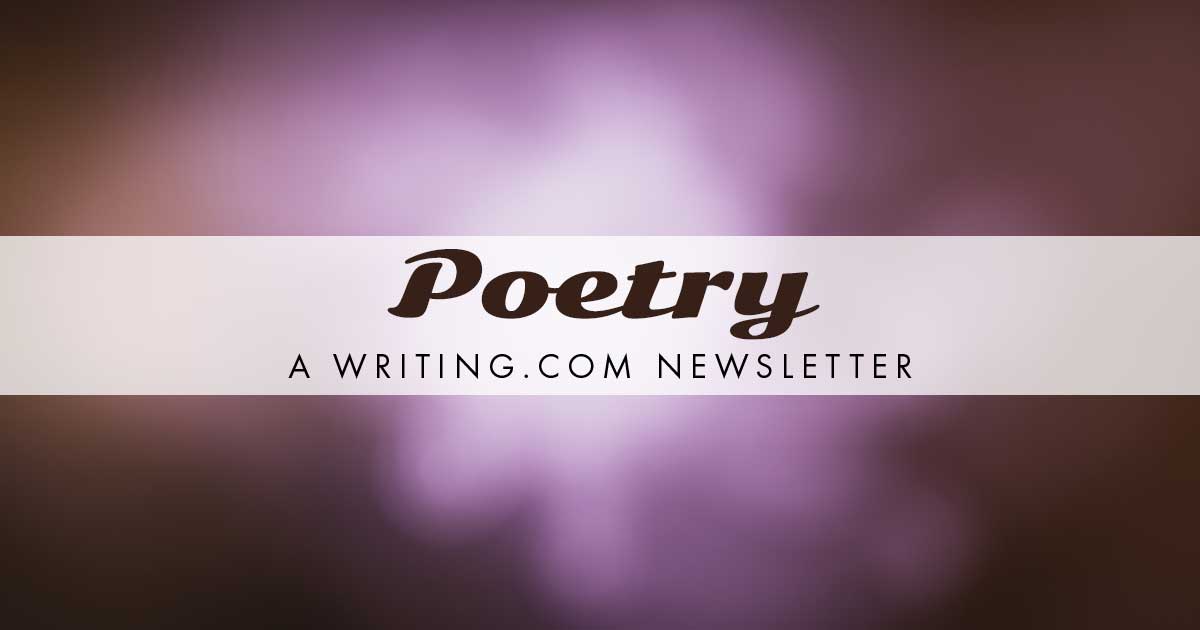This week: Echo, Don’t Explain Edited by: Jayne  
More Newsletters By This Editor 
![Table of Contents [#401437]
Table of Contents](https://www.Writing.Com/main/trans.gif) ![Table of Contents [#401437]
Table of Contents Table of Contents](/main/images/action/display/ver/1709303267/item_id/401437.png)
1. About this Newsletter
2. A Word from our Sponsor
3. Letter from the Editor
4. Editor's Picks
5. A Word from Writing.Com
6. Ask & Answer
7. Removal instructions
![About This Newsletter [#401439]
About This Newsletter](https://www.Writing.Com/main/trans.gif) ![About This Newsletter [#401439]
About This Newsletter About This Newsletter](https://www.writing.com/main/images/action/display/ver/1709303676/item_id/401439.png)
Hello, I'm Jayne! Welcome to my poetic explorations. My goal with these newsletters is to take us on a journey through the forms, devices, and concepts that make poetry so powerful. Sometimes, a series of newsletters will interconnect, while other issues will stand alone. I strive to ensure they are informative but fun and do my best to spark your curiosity. Don’t forget to check out this issue's curated selection of poetry!
|
![Letter from the editor [#401442]
Letter from the editor](https://www.Writing.Com/main/trans.gif) ![Letter from the editor [#401442]
Letter from the editor Letter from the editor](https://www.writing.com/main/images/action/display/ver/1709303784/item_id/401442.png)
Poets know that their poems mean something, but sometimes lack the confidence to trust that the reader will find that meaning. In an effort to ensure the poem hits like they intended, the writer doubles down on their message, making sure it cannot be missed. Repetition, additional imagery, and extra stanzas of explanation seem like a good idea, but they usually do more harm than good. Instead of keeping your poem evocative and layered, you end up with something obvious and literal.
What’s an Echo?
The concept of an echo is letting an image, phrase, or metaphor resonate with the reader, but without pinning it down in concrete terms. For it to be effective, you need to trust your reader to experience your emotions instead of boxing their feelings in.
Things to Consider with Echo
{quote} 1. Nothing kills mystery and tension faster than an over-explaining poet.
If you write, “the apple rotted like my heart,” you’ve collapsed the metaphor, and you might as well say, “my heart rotted.” Let the apple rot. Let the reader explore their feelings about the matter in their own way.
2. Labeling emotion can take some power away.
There is a reason psychologists and therapists invite clients to identify their emotions and label what they’re feeling. If, for example, fear is masquerading as anger, it’s important to reclaim the feeling so you can address it, lessening its hold on you. Writing works in a similar way. Saying “I was heartbroken,” evokes empathy, but showing the unwashed coffee cup, the voicemail unplayed (or replayed), or an apple rotting in a lunchbox offer an immersive experience that surrounds the reader with grief.
3. Smart repetition builds tension.
If something matters, return to it, but don’t explain it. Revisit the apple as you like in different ways, but avoid direct comparisons, over-analyzing your own words, or losing faith in your readers.
Two Writing Exercises
Write the poem, then cut the last two lines. Does it still work? If so, those lines were probably explaining what the poem already did.
Or
Highlight every sentence where you “tell” the reader how to feel, or how you feel. Keep only the ones that do it without naming the emotion, or comparing it to something else with "like."
Remember, once you unleash your writing into the wild, you can’t control how every person interprets every word, and that’s okay. A good poem doesn’t answer every question directly and leaves a little something for the reader to muse about.
As always, happy writing! |
![Editor's Picks [#401445]
Editor's Picks](https://www.Writing.Com/main/trans.gif) ![Editor's Picks [#401445]
Editor's Picks Editor's Picks](https://www.writing.com/main/images/action/display/ver/1709303830/item_id/401445.png)
![Word From Writing.Com [#401447]
Word from Writing.Com](https://www.Writing.Com/main/trans.gif) ![Word From Writing.Com [#401447]
Word from Writing.Com Word from Writing.Com](https://www.writing.com/main/images/action/display/ver/1709303874/item_id/401447.png)
Have an opinion on what you've read here today? Then send the Editor feedback! Find an item that you think would be perfect for showcasing here? Submit it for consideration in the newsletter!
https://www.Writing.Com/go/nl_form
![Ask & Answer [#401448]
Ask & Answer](https://www.Writing.Com/main/trans.gif) ![Ask & Answer [#401448]
Ask & Answer Ask & Answer](https://www.writing.com/main/images/action/display/ver/1709303902/item_id/401448.png)
![Unsubscribe [#401452]
Removal Instructions](https://www.Writing.Com/main/trans.gif) ![Unsubscribe [#401452]
Removal Instructions Removal Instructions](https://www.writing.com/main/images/action/display/ver/1709303960/item_id/401452.png)
To stop receiving this newsletter, click here for your newsletter subscription list. Simply uncheck the box next to any newsletter(s) you wish to cancel and then click to "Submit Changes". You can edit your subscriptions at any time.
|
